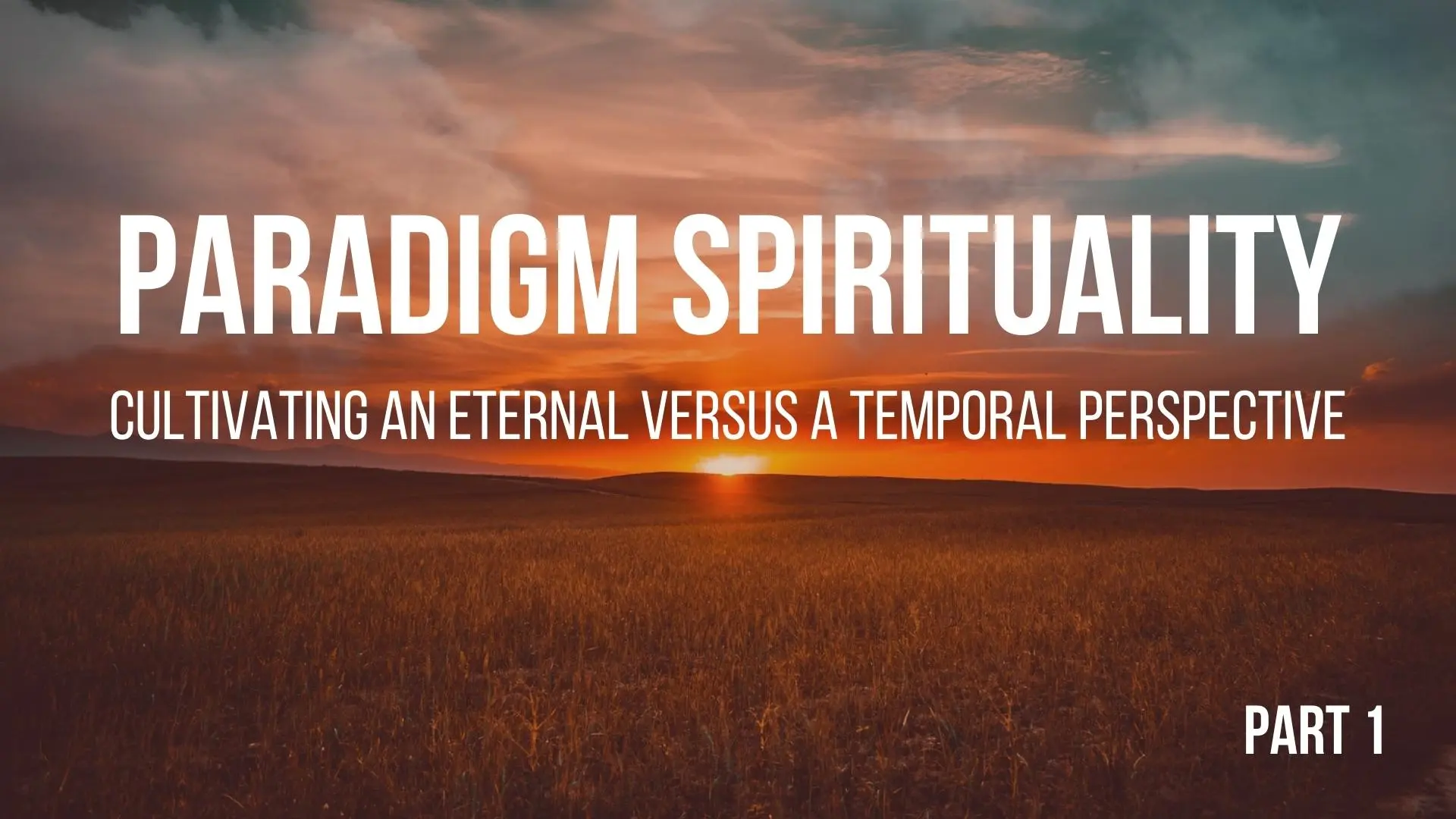It is difficult to live according to a biblical-eternal paradigm, because we live in the temporal arena. Shifting to a biblical paradigm involves great risk, because it challenges everything our culture reinforces.
But the struggle isn’t only external; it’s also internal. And this ongoing struggle within us continues for the entire length of our worldly sojourn after we begin to follow Christ. That pilgrimage is brief in light of eternity, even though it may feel long in the midst of it.
In reality, we have very limited time to be everything we would like to be and to do everything we would like to do. The 70 or 80 years (more if we’re lucky) we get is not enough time to realize the capacities within us. This is why it’s important to focus on eternity—to focus on what the LORD would have us do and be, both here on earth and after we depart.
A Brief Sojourn
Our worldly pursuits will come to an end, and when we examine our deepest longings, we find that there is indeed nothing in the offerings of this transitory world that will ultimately satisfy us. Our small temporal achievements will fade away. They are prone to corruption and decay, and for us, they end at the grave. This is consistent with the biblical vision, which says that all human attainments will be consumed on the day of the LORD:
But the day of the Lord will come like a thief, in which the heavens will pass away with a roar and the elements will be destroyed with intense heat, and the earth and its works will be burned up. (2 Peter 3:10)
The author of Ecclesiastes understood this well, writing, “I have seen all the works which have been done under the sun, and behold, all is vanity and striving after wind” (Ecclesiastes 1:14). Why are the worldly pursuits of man vanity? Why do they constitute a “striving after wind”? Because God has set eternity in our hearts (Ecclesiastes 3:11). We will not find here what we’re ultimately made for in the offerings of the world. The apostle John gives a similar exhortation regarding the love of the world:
Do not love the world, nor the things in the world. If anyone loves the world, the love of the Father is not in him. For all that is in the world, the lust of the flesh and the lust of the eyes and the boastful pride of life, is not from the Father, but is from the world. And the world is passing away, and also its lusts; but the one who does the will of God abides forever. (1 John 2:15–17)
Living This Day in Light of That Day
If we are to live now in light of our everlasting future, we must be diligent to treasure every opportunity. We must be alive to the present moment, realizing that this life quickly fades. Despite the transitory nature of life, what we do this day does matter for that day when all things will be made new and when we attain the fulfillment of God’s promises. We must remember Paul’s exhortation:
Therefore be careful how you walk, not as unwise men but as wise, making the most of your time, because the days are evil. So then do not be foolish, but understand what the will of the Lord is. (Ephesians 5:15–17)
Let us not be overwhelmed by the problems of this life, but let us look with eager anticipation to our wonderful future, and let us help others realize that they too have the opportunity to enjoy that wonderful future in Christ Jesus, our Lord.
This study is based on “Facet 2: Paradigm Spirituality” in Ken Boa’s Conformed to His Image: Biblical, Practical Approaches to Spiritual Formation, rev. ed.
Missed a part of the series? Catch up by clicking here.
Note: The title of this post is taken from A.W. Tozer’s The Knowledge of the Holy.



